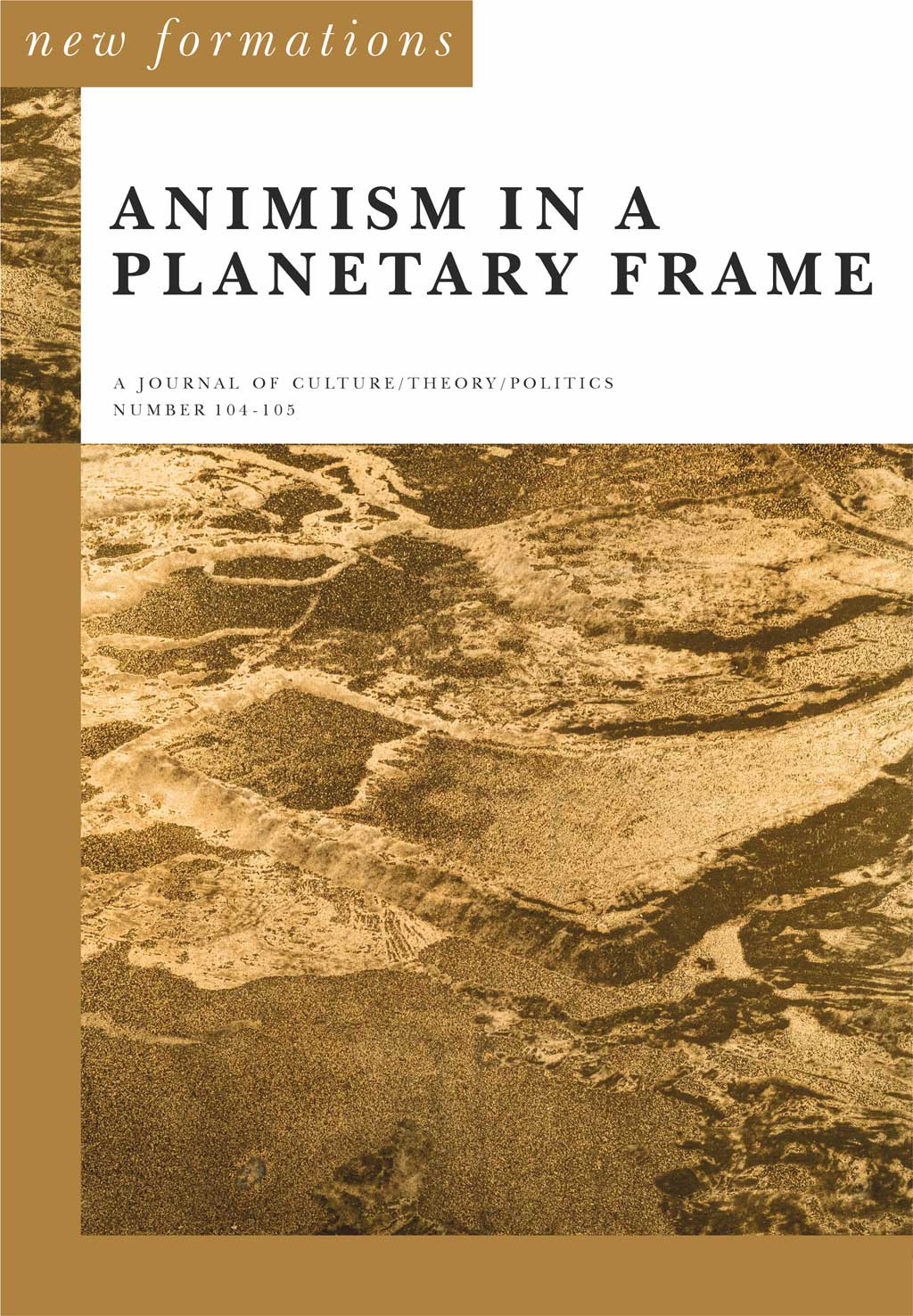
Dispossessing Animism: Zong! and Spiritual Baptism
New Formations - ISSN 0950-2378
Volume 2021 Number 104 & 105
Dispossessing Animism: Zong! and Spiritual Baptism
Philip Dickinson pages 77-104
DOI: 10.3898/neWF:104-105.04.2021
Abstract
This essay intervenes in the emerging discussions around animism by situating animism within the ongoing projects of colonial bio- and necropolitics. While ‘animism’ is often taken to denote pre- or anti- or counter-modern cosmologies that promise an alternative to the ontologies that sustain colonial violence, it has been recognised that there are in fact a variety of ways in which animism is ‘built in’ to modernity, and in which modernity itself is constituted as animistic. This essay pulls this recognition in a new direction by developing a theory of the ‘distribution of the animate’, describing a system of animist perception and expression by which different kinds of bodies, beings and forces are positioned and differentiated. This theory allows me to explore a shared zone in which the apparently relentless materialism of colonial biopolitics and the supposedly spiritual orientation of animism meet, collide and intertwine. This zone appears in this essay in a range of moments and modes, including the ‘word’ of possession in new world conquest, the anthropological invention of animism itself, the anticolonial resistance and spirit possession of the Hauka, the transubstantiative magic of chattelisation and, via an extended close reading, the text and performance of Marlene NourbeSe Philip’s long poem, Zong!. I show that animism is not really the other to colonial modernity: to say this is to buy into a foundational colonial myth. Instead, what is at stake in the theoretical construct of animism are the qualities that distinguish one kind of life from another. The colonial systems for knowing the other (enshrined in anthropology) and dominating the other (exemplified by biopolitics) invent, recruit and disavow animism in order to naturalise the denial of personhood to colonialism’s others. My argument is that for animism to escape these systems of possession it has to become something other than animism, by affirming a dispossession (rather than distribution) of animacy. I locate this dispossession in the sound and performance of Zong! and associate it with the poem’s refusal of more familiar literary projects that try to reclaim and restore voice and personhood.
SORRY - you are not registered as being permitted online access to the full text of this article
You have the following options:
- If you are viewing this via an institution or academic library you can ask that your institution takes out a Subscription to this journal.
- If you already have a Personal Subscription please login below
Forgotten your username / password? Click here to locate
- Purchase an annual Personal Subscription
PRINT + DIGITAL personal subscription (£45 / year)
DIGITAL personal subscription (£30 / year)
A Personal Subscription provides immediate access not only to the single article you are seeking, but also to all past and future articles in this journal up to the expiry of your annual (calendar year) subscription. - Purchase immediate access to this single article (UK£7.00) - Buy article Coming Soon
To cite this article
Philip Dickinson (2021) Dispossessing Animism: Zong! and Spiritual Baptism, New Formations, 2021(104 & 105 ), 77-104. https://doi.org/10.3898/neWF:104-105.04.2021
